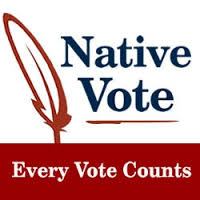Last year in Shelby County v. Holder the Supreme Court struck down Section 4(b) of the Voting Rights Act (“VRA”), holding that “[o]ur country has changed” so that Section 5’s preclearance formula no longer “speaks to current conditions.”
In essence, Section 5 of the VRA allowed federal administration enforcement of the voting laws, rather than judicial enforcement, by forbidding certain states and local governments from implementing “any voting qualification or prerequisite to voting, or standard, practice, or procedure with respect to voting” without preclearance from the Department of Justice (“DOJ”). “Covered jurisdictions” — jurisdictions subject to preapproval obligation of Section 5 — were determined by utilizing a formula found in Section 4(b) of the VRA. Section 4(b) designated as “covered” those jurisdictions that (a) had maintained a “test or device” — i.e., literacy or knowledge tests, good moral character requirement, voter registration materials, etc. — as a prerequisite to voting as of November 1, 1964, and had less than 50 percent voter registration or turnout in the 1964 Presidential election; (b) had a voting test or device and less than 50 percent voter registration or turnout as of 1968; or (c) had a voting test or device — including, this time, English-only voting materials in places where over five percent of voting-age citizens spoke a single language other than English — and less than 50 percent voter registration or turnout as of 1972.
As a result of this coverage formula, particularly redefinition of a “test or device” as English-only voting materials in 1975, numerous states and districts containing Indian reservations became covered. The litigation that followed revealed not only that these jurisdictions continued to discriminate against Native American voters, but that Indian Country has not even gotten to the point of raising challenges to the complex contemporary vote dilution cases brought in significant numbers by other minorities. Instead, Native Americans are still facing the antecedent issues regarding their inability to elect any representatives at all. The Blackmoon v. Charles Mix County, No. 05-4017 (D.S.D.), litigation, for instance, revealed that under the County’s proposed voting plan there was “no reasonable probability that Native American voters could elect their candidate of choice” and that Native Americans were outright “discriminated against in registration and other parts of the voting process.” Similar suits and proposed legislation submitted to the DOJ for preclearance revealed similar deficiencies.
Thus, shortly after the Shelby County decision was issued, I authored a law review article arguing that while it may be the case that the coverage formula does not “speak[] to current conditions” outside of Indian Country, this is not true within. While the Section 4(b) formula may not be constitutional under Shelby County, I argued:
Indian-specific [voting] legislation is justified, necessary, and indispensable to the protection of the Native vote. This is particularly true considering Congress’ plenary and exclusive authority over Indian affairs, including relations between states and tribes. Indeed, if there is any area where limitations placed upon Congress by the Fifteenth Amendment would not prevent preclearance legislation, it is in Indian Country, where Congress has an affirmative trust and fiduciary obligation to ensure that Native American voters are fully enfranchised.
On June 9, the DOJ took the first step in making this suggestion a reality by initiating formal consultation between Tribal officials and the DOJ to discuss whether the DOJ should recommend to Congress Indian-specific legislation that would address the gaps created by the Shelby County decision. The DOJ cites as Congress's authority to enact this legislation the "plenary power to legislate in respect to Indian tribes" and "Congress's unique obligation toward Indians -- in particular, its responsibility to ensure that they are included fully within the modern body politic -- [which] gives Congress the power to require fair treatment for American Indian and Alaska native voters."
The DOJ is set to circulate a consultation schedule by July 9. All tribes are invited to offer input on the proposed legislation.
Ryan Dreveskracht is an Associate at Galanda Broadman, PLLC. His practice focuses on representing tribal governments in public affairs, energy, gaming, taxation, and general economic development. He can be reached at 206.909.3842 or ryan@galandabroadman.com.




